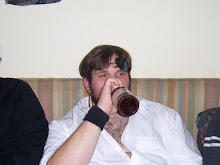A feel-good movie if there ever was one, Nigel Cole's MADE IN DAGENHAM tells the story of the 1968 strike by the women workers of Ford's plant in Dagenham that ultimately resulted in the passage of equal pay legislation in Britain. While it's a little too frothy, and the return to our current cultural climate outside the darkened theatre is something of a downer afterward, it's a solid film to spend a couple of hours with, and features the always fantastic Sally Hawkins as Rita O'Grady, a composite of several real-life women who lead the movement.
Like most films based on political movements/activists like this, there's a certain trajectory that's expected to play out on screen: person has injustice, person takes action against their adversary, person overcomes injustice. And to be sure, MADE IN DAGENHAM follows this precisely, never really wavering from its path, though it has some nice surprises here and there, mostly in the ways it deals with the interpersonal and familial relationships at stake. Rita and her husband Eddie have a pretty healthy relationship, and while there are trying moments that would likely hit any family going through an income crisis as they have (especially once the strike by the women causes a plant-wide shutdown), it really comes through that they love and care about one another, and there are plenty of apologies to go around.
As the film tracks the encounters with management and their spineless self-serving union leaders, and the disappointments experienced by the women at their hands, the film moves along at a fairly quick pace, finding its footing in the swift dialogue and the pleasure of watching such skilled actors at work. It doesn't really matter that the story itself is predictable - they'll never really make the kind of movie that ends with the decimation of unions' bargaining rights - because the film's charms are its quiet moments and often boisterous interactions. And the actors are more than capable of buoying a film like this.
Sally Hawkins, who I've already mentioned, and who most audiences may know from her lead role in Mike Leigh's HAPPY-GO-LUCKY, is once again a charming on-screen presence and proves that she really should be in many many more movies (a quick check of her IMDB tells me she'll be in at least two films in the coming year, which I'll happily check out just because.) She's helped along by some strong supporting work from the two prominent male cast members: Daniel Mays as her husband, and the incomparable Bob Hoskins as a low-level union rep that actually has the balls to get the job done as it needs to be, bypassing politics and getting right to the heart of the problem. But the film's biggest jaw-dropper is the sheer amount of female acting chops on display, with all of its major moments revolving around women and the stifling feelings they have when they are spoken down to and about by males running everything without ever being asked what they might actually feel best suits their interests.
Underneath its light surface is a darker commentary about the ways in which male-centric societal discriminations shade even our own thoughts about who is important and should be important in not just everyday interactions, but even in the simple act of watching a film - even one such as this that really puts the voices of women right out in front. Hoskins and Mays aside, the major characters that drive the film are all the friends of Rita who stand behind her and support her giving voice to their concerns as women. Miranda Richardson is a hoot as Barbara Castle, who is still the only woman ever to have held the office of First Secretary of State in Britain, and Rosamund Pike turns in a really tight performance as Lisa Hopkins, a highly educated woman kept underneath the power structure in both Britain and her own household by her husband, who is the labor relations director for the Ford company in the U.K.
The real heart and soul for, and the most conflict when sticking up for her sisters for Rita, comes from her best friend, Connie, played by the wonderful Geraldine James. Connie's husband, George, is a former soldier who is experiencing what we now know is PTSD, and some days are obviously better than others. Their relationship as husband and wife, which may be a shadow of its former self, is powered by pure love, and ultimately, George sees his wife as someone who deserves everything she has been fighting for. The denouement of this particular section is very sad and poignant, but it provides the story with just enough oomph and impetus to get over the hump of making sure Rita's friendships really do see her through to the end. Really, it's a touching moment when Connie, who was once the spokeswoman for the girls, and Rita both enter the labor union's conference together.
It's not really a surprise to see such good acting in a British film. Half of their acclaimed talent currently fills U.S. productions anyway. But it is a surprise to see a film that really attempts to get to the heart of its female characters, and provide a realistic view of their relationships with one another and their families, and with society-at-large. MADE IN DAGENHAM may be a rather light-hearted affair, but there's enough going on beneath the surface concerning sexism and its inherent role in every facet of Western culture that it really is worth a second look beyond the cursory first glance. Even if it is just for the sheer amount of wonderful performances, which given such great work in smaller roles by the likes of Andrea Riseborough and Jaime Winstone, et al, I really haven't even tipped the bucket on.














